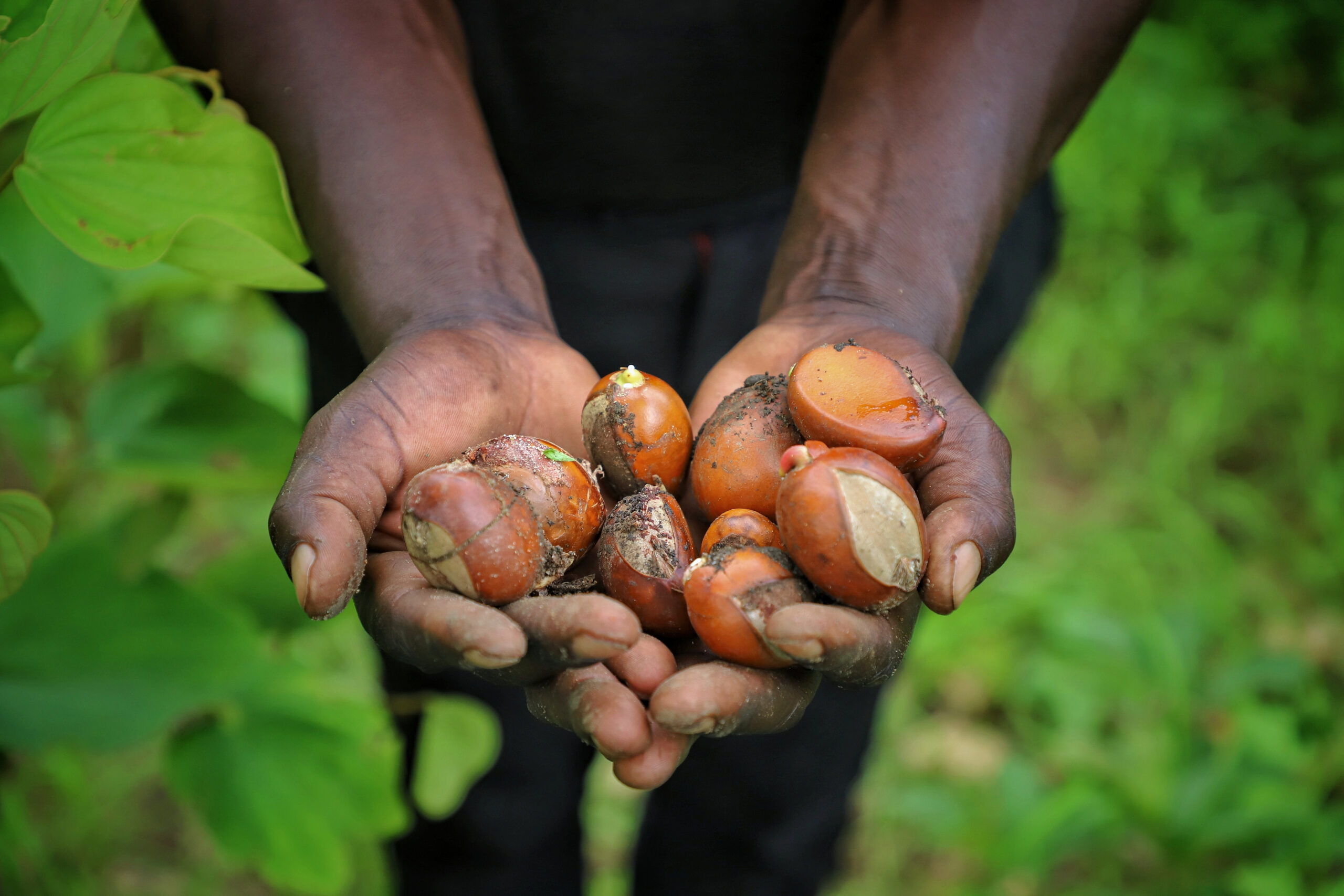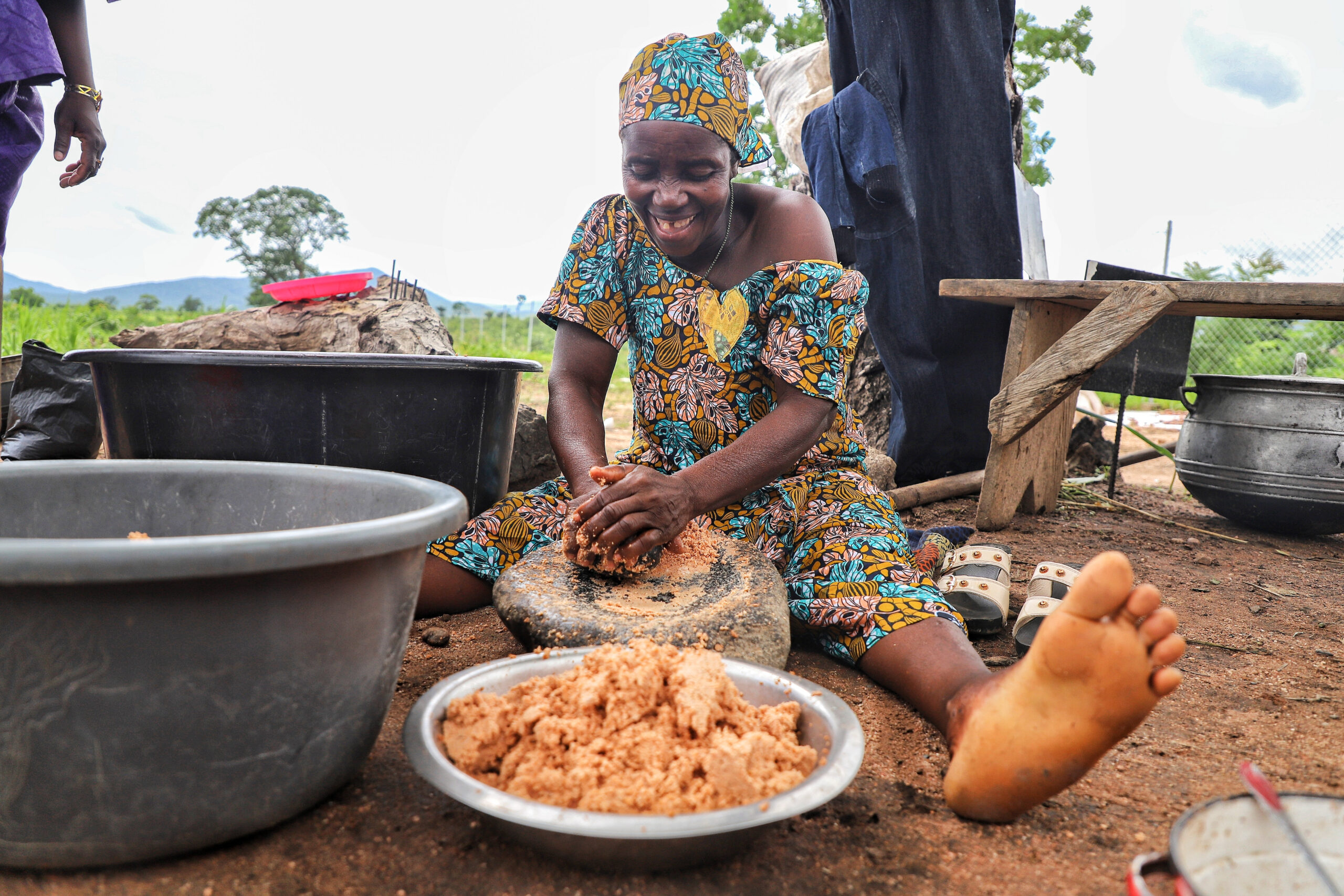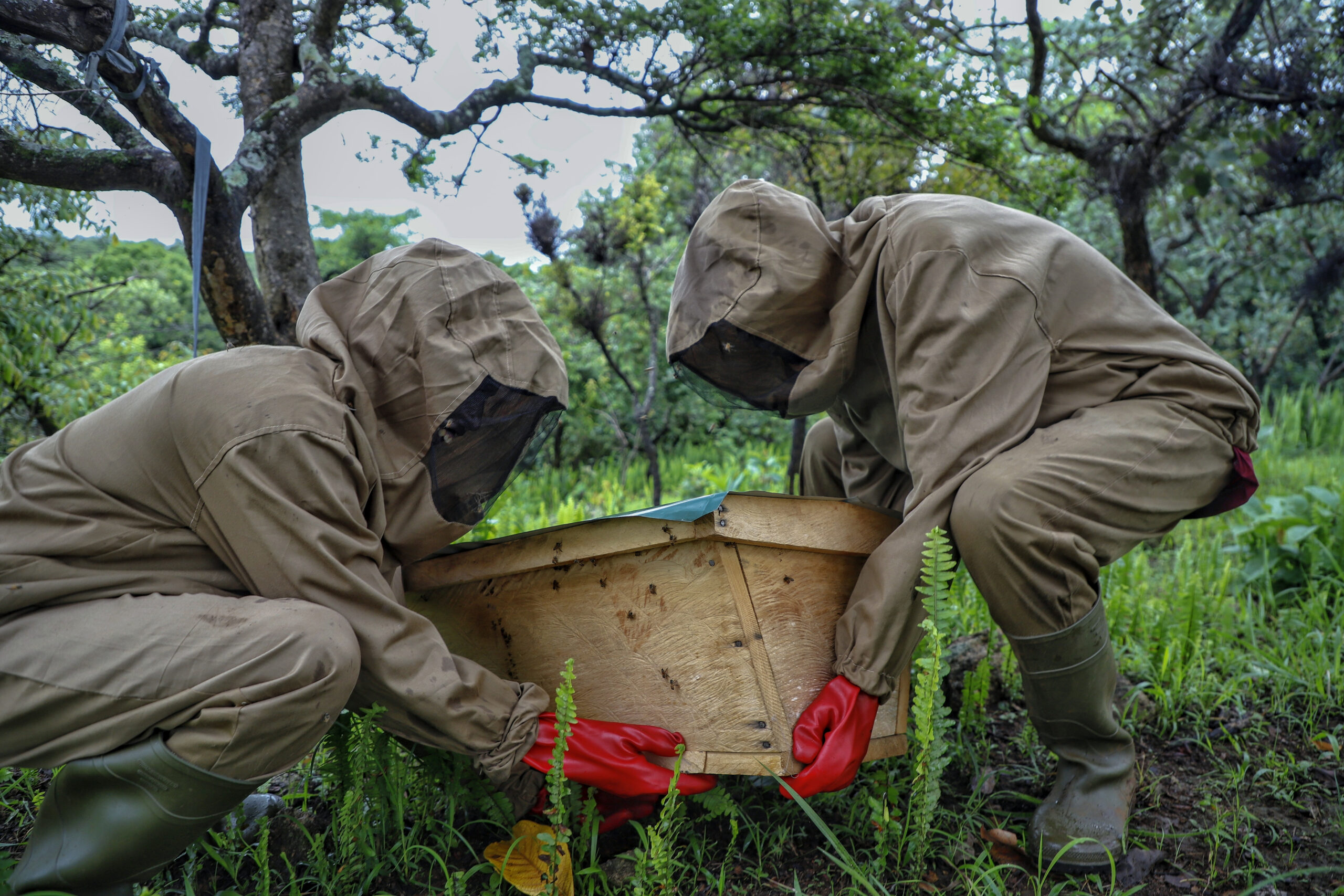In a region badly affected by deforestation, poverty and conflict, CERAF-Nord is helping communities raise their incomes and protect the environment. The organisation has helped local people plant more than 543,000 trees, while more than 1,500 people are earning a better living.
The park’s forests have been badly damaged by bush fires, logging and animal grazing. But through a team of nearly 50 paid experts, CERAF-Nord supports local people to plant a carefully chosen mix of trees that boost soil health and produce valuable crops – including cashew and shea nuts. Almost 200 volunteers monitor the health of the trees and replace any that are dead or destroyed.
CERAF-Nord gives local people training and materials to harvest the fruit and nuts from the trees, and turn them into products such as butter and soap. It has also helped people keep bees, and make products including candles and honey wine.

The organisation helps communities form producer co-operatives – when people sell what they make together, they can attract a higher price. CERAF-Nord connects the co-operatives with large-scale buyers, and supports them to get fair deal.
The co-operatives have created savings schemes which fund community projects. These schemes have paid for a new community hall in one village, and a school and teacher’s salary in another. The charity has also begun helping local people use solar-powered machinery to turn raw ingredients into more valuable products.
"Just like bees, we work together"
Promoting inclusion, tackling conflict
CERAF-Nord also works with local authorities to strengthen the rights of the Mbororo people, a marginalised indigenous group. Conflict between groups is a major issue in the area, and CERAF-Nord’s work eases tensions and tackles illegal activity.
Many trees planted by the communities are an attractive fodder for grazing animals – so introducing more of them on the edges of the park prevents damage to the heart of the forests. The arrival of new ways to earn a living discourages poaching. Meanwhile, introducing bee hives into the forests gives people a greater incentive to prevent and put out bush fires.
The organisation also creates or boosts income-earning opportunities for women – for example, by making sure they are involved in beekeeping activities, and increasing access to solar energy to replace manual food processing tasks normally done by women.

Fadimatou is one woman taking part in the scheme. She has been using shea nuts to make butter and medicine since she was a girl, but forming a co-operative with her friends has helped them generate more money and invest in new activities, like keeping goats.
She says becoming treasurer of the co-operative has taught her important new skills. She plans to continue expanding her business, and one day send her children to university.

Yaya Ousmanou is a beekeeper, and secretary to the new beekeepers’ co-operative, in his village of Tchabbal Faransa. The father of two expects the group will be able to harvest 230 litres of honey during their next harvest. He gives paying health care bills as one common way people use the money they make.
Yaya says: “Just like bees, we work together for the development of our community.”
